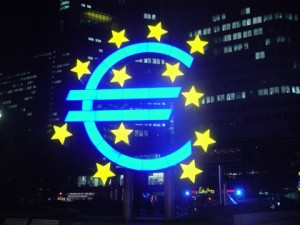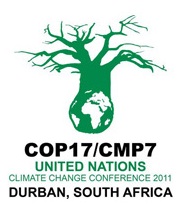
Another Summit, Another Bleak Day for European democracy
EU leaders gathered in Brussels on Monday for more ritual banging of the euro-austerity drum, with 25 of the 27 member states agreeing to the Germany-inspired ‘fiscal compact’ treaty – to be signed in March (only the Czechs joining David Cameron in sitting on the sidelines). With the new treaty commitment to outlaw expansionary – Keynesian – economic policies, it was another bleak day for European democracy. Some had hoped that the summit’s focus on growth and unemployment, especially youth unemployment, meant the Europe’s top politicians were finally recognising Europe’s deepest problems – and might even take action. But it was a bleak day too for the unemployed with a tired rehash of free market policies in the summit statement …

Towards a Realizable Progressive Politics: A Q&A with Dr. Sophie Heine
Dr. Sophie Heine is a visiting scholar at the University of Oxford Department of Politics and International Relations, a Research Fellow at the Universtité Libre de Bruxelles and FNRS and a Wiener-Anspach Foundation Scholar; her research engages with identity politics and ideology in contemporary Europe. Here, she takes a moment to speak with Politics in Spires regarding the Occupy protests of 2011, and offers a preview of her forthcoming book. I. Your recent work, Oser penser à gauche (“Dare to think to the left”), argues that contemporary progressive politics must redefine its underpinning ideology and articulate a coherent, emancipatory platform for change. This analysis proves particularly relevant to the waves of “Occupy” protests that began in New York in October …

The Passing of Vaclav Havel
Prague: 23rd December 2011. There are many fuzzy contours to the upcoming year, marred by pessimistic forecasts and feelings of uncertainty and anxiety. These are echoed in the melancholic atmosphere of today’s Prague. Yet, right at the time when one would think that most Czechs are able to care only about things which bring them material profit, the bulk of the people in this country show that such a judgement would be harsh and unfair: thousands and thousands of them, all visibly moved, have been attending designated places (first a church near the Charles Bridge, later the Vladislav Hall in the Prague Castle) to bow down before the coffin of our former President, usually after waiting for hours in long …

Cameron taking UK out of Europe without a referendum?
When the ‘make or break’ summit to save the euro finished in Brussels on Friday afternoon, David Cameron headed rapidly for the exit without the traditional end of summit press conference (making do, unusually, with only an interim pre-dawn one as the leaders stumbled out from their almost ten hours overnight talks for a short break before breakfast). As the dust settles from this critical summit, the gap between the UK and other European countries has never been wider, nor the UK’s influence closer to zero. As Tory sceptics applaud what any sane observer would call a major foreign policy disaster, could it be that Cameron is in the process of taking the UK out of the EU without a …

Sticking it to the man with the tool at hand
The Guardian and the LSE have partnered up on an impressive journalistic-cum-sociological analysis called “reading the riots”, examining the unrest that rocked England this summer on the basis of interviews with people involved, massive social media datasets, and various forms of secondary sources. This is a very laudable attempt to make sense of what happened why in August, important questions at the heart of both journalism and social science. The collaboration examines many different themes, today the role of different “social media” (and more generally, digital networked media) in the riots. The material released provides both qualitative and quantitative evidence for dismissing the claims—frequent in August, and spread by for example by an Associated Press story still up on thousands …

EU and China’s institutional diplomacy in the field of climate change.
Forthcoming Occasional Paper to be published by the European Union Institute of Security Studies (EU ISS). Author: Pietro De Matteis. Summary and Policy Recommendations. This Occasional Paper aims at giving another perspective on the relevance of climate change for the EU’s foreign policy. Considering its linkages with various policy areas such as energy security, economic growth, foreign policy and even political stability, climate change is a major “game-changer” in international relations, and constitute a significant opportunity to reshape the international order according to the new global equilibria. As such, the set up of the climate change regime constitutes for the EU both an opportunity and a threat, in as much as it may either accelerate Europe’s decline as a …

Turkey in the world – between continuity & change
Just returned from a talk by the current Turkish Ambassador to the UK. The event was under Chatham House Rules, hence I will not be able to report from it. But I will use this and previous events in the last couple of weeks as an anchor for some reflections on Turkish Foreign Policy. // A rising power… Last week Davutoglu, Babacan, Boris Johnson and Jack Straw gave some interesting speeches at a dinner in London. The overall tone was clear: Turkey is a rising regional if not global power. It is the 16th biggest economy in the world with phenomenal stable growth figures currently approximately at around 8% per annum. Erdogan is a leader empowered with all three Weberian …

“The Rights of Journalism and the Needs of Audiences”: Onora O’Neill on the Rise of Corporate Media
On 21 November 2011, the Oxford Reuters Institute for the Study of Journalism hosted its annual Memorial Lecture at St. Anne’s College, exploring “The Rights of Journalism and the Needs of Audiences.” The topic shed light on the phone hacking scandals that occurred last summer, shaking both media and consumers alike, and culminating with the closure of Rupert Murdoch’s News of the World. The Institute had the distinct pleasure of hosting renowned philosopher and former President of the British Academy, Baroness Onora O’Neill, to deliver the lecture. O’Neill framed her talk around the complicated relationship between the rights to privacy and free press, emphasising that the debate between these two key features of democratic societies fails to adequately show how …









